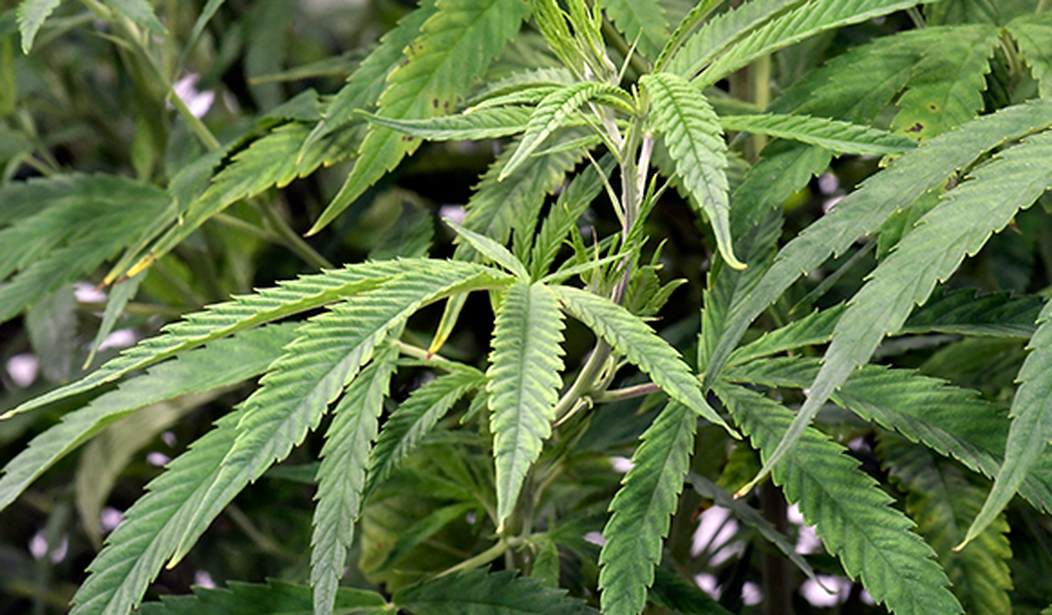Seventeen years ago, the federal government raided Charlie Lynch's medical marijuana dispensary in Morro Bay, California, and charged him with five drug felonies. Lynch, whose business complied with state and local regulations, has been fighting to stay out of prison ever since, and last month he finally won that battle.
The Justice Department, which had been insisting since the first iPhone was released that Lynch should be incarcerated for at least five years, suddenly agreed to a deal that will spare him that punishment and erase his criminal record. The case, which proceeded on autopilot even as marijuana prohibition collapsed in one state after another, is a vivid reminder that the unjust, massively unpopular policy persists at the federal level thanks to presidential and congressional inertia.
Lynch, a software developer who lived in San Luis Obispo County, started mulling a new line of work after he obtained a doctor's recommendation for marijuana to treat his cluster headaches and found there were no nearby dispensaries that could supply his medicine. He conferred with a lawyer, local officials and even the Drug Enforcement Administration before opening Central Coast Compassionate Caregivers in downtown Morro Bay in April 2006.
California had legalized medical marijuana a decade earlier, and Lynch's business was licensed, above board and legitimate as far as the city and state were concerned. The mayor, the city attorney and city council members attended the grand opening ceremony, where the mayor posed for a photo shaking Lynch's hand.
None of that mattered to the DEA, which raided the dispensary in March 2007, at which point it had been openly serving patients for a year. During Lynch's 2008 trial in Los Angeles, he was not allowed to discuss the nature of his business, which was irrelevant under federal law.
Recommended
"We all felt Mr. Lynch intended well," the jury forewoman told the Los Angeles Times. "But under the parameters we were given for the federal law, we didn't have a choice."
At sentencing, U.S. District Judge George Wu considered details the jury was not allowed to hear, including the purpose of Lynch's business, his extensive efforts to comply with state regulations, and the "scrupulous record-keeping" that enabled him to do that even as it facilitated his federal prosecution. Noting that Lynch had no prior criminal convictions and deeming him neither a typical drug dealer nor a serious threat to public safety, Wu sentenced him to a year and a day in federal prison.
Lynch appealed his convictions, and the Justice Department appealed the sentence, arguing that Wu had improperly allowed Lynch to avoid the five-year mandatory minimum that ordinarily would apply based on the amount of marijuana his dispensary had stocked. In 2018, the U.S. Court of Appeals for the 9th Circuit upheld Lynch's convictions and agreed that he should have received the mandatory minimum but sent the case back to Wu to resolve lingering questions about Lynch's compliance with state law.
Why did that suddenly matter? The year after Lynch's trial, a DOJ memo discouraged prosecution of state-legal medical marijuana suppliers. Beginning in 2014, Congress made that policy mandatory through a spending rider that has been renewed every year since.
Meanwhile, the number of states that allow medical use of marijuana has risen to 38, including two dozen, accounting for most of the U.S. population, that also allow recreational use. Some 15,000 businesses across the country are doing what Lynch did, unmolested by the DEA or the DOJ.
Lynch's case nevertheless dragged on, bankrupting him, blocking his employment and leaving him in legal limbo. Federal prosecutors belatedly relented in January, and last month Wu approved a diversion agreement that will clear Lynch's record as of this April.
"I think a lot of people forgot about Charlie Lynch," his former public defender remarked. But the federal government's pointless vendetta against Lynch is worth remembering, since it reflects a prohibition policy we are still stuck with 17 years later.

























Join the conversation as a VIP Member